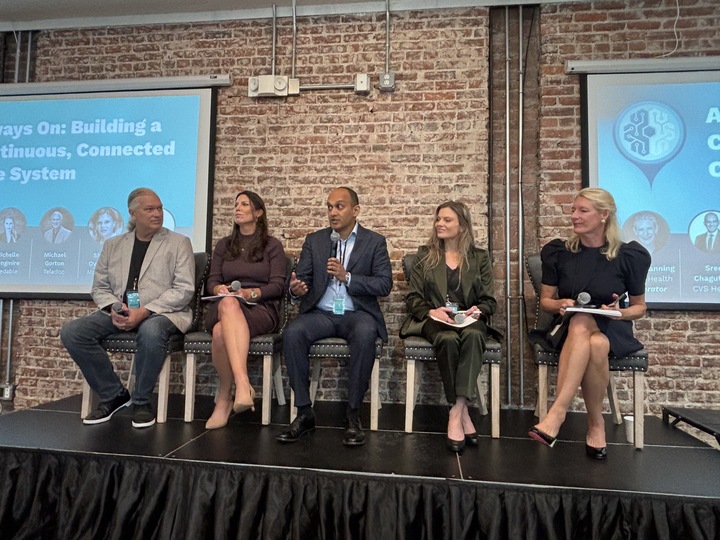
During a Monday session at the Digital Medicine Society’s Healthcare 2030 Summit in Washington, D.C., a panel of four healthcare executives and entrepreneurs shared the issues they feel deserve more attention from innovators in the field.
Below are the issues they highlighted.
Addressing medical errors with AI
Michael Gorton, founder and former CEO of Teladoc Health, said that he wants doctors “to have AI in their ear.”
He pointed out that medical errors result in about 250,000 deaths per year and said that he would like to see more AI solutions that address that problem.
“[Doctors are] making mistakes that they shouldn’t be making — not because they aren’t that smart, but because they’re so busy. They need to have AI listening and saying, ‘Maybe it’s not this, it’s that,’” Gorton stated.
Diving into the clinic
Sree Chaguturu, president of healthcare delivery at CVS Health, noted that he receives pitches from a lot of different healthcare startups.
“What I find is that many of them are great on paper, but they haven’t actually done the full contact sport of being in the clinics, being on the ground,” he remarked.
He added that a key reason Teladoc was one of the first virtual care companies to realize true success was that the company worked side-by-side with clinicians to understand their pain points and workflows.
“The more we can be close to the problem, the better our solutions,” Chaguturu said.
Allowing patients to own their data
Shauna Overgaard, senior director of AI strategy & frameworks at Mayo Clinic, highlighted patient data ownership as the number one healthcare issue she would like to be addressed.
“On a moment-to-moment basis, it’s patients that make decisions about their health. I think that it’s time to democratize that and really give patients their own databases,” she declared.
She mentioned there is a growing push to give patients more control over their health records — to ensure they, not providers or tech companies, get to decide how their data is shared and used.
Better incentives for a strong PCP-patient relationships
Ann Allen, chief operating officer and director of health system partnerships at Amazon One Medical, said she wants to see more alignment of incentives around the relationship between a patient and their primary care provider.
“We could save $67 billion annually if we started with having a relationship with a PCP and a patient. It could be that simple,” she remarked.
Her point highlighted how stronger PCP-patient relationships could cut down on costly emergency visits and specialist care.










